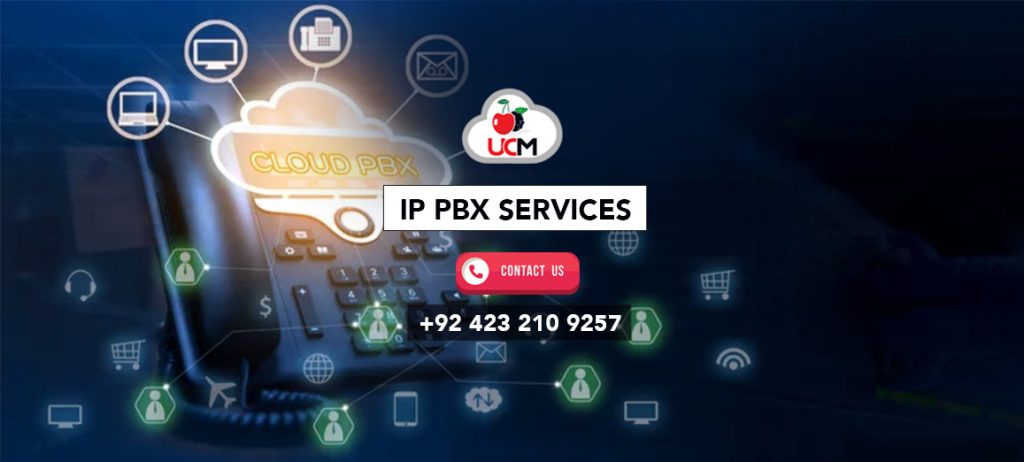How Inbound Call Services Enhance Proactive Customer Support?
Why Do You Need Inbound Call Services?
Access to plenty of choices in the market has increased the expectations of digital customers. It has become more challenging for businesses to keep customers satisfied than to attract new ones. This is why most companies are navigating towards a transformative era in customer service by prioritising customer satisfaction and investing in specialised Inbound Call Services. These services enable your customers to reach out to your business conveniently and effortlessly to resolve their issues efficiently.
How Do Inbound Call Services Functions Differently Than Outbound Call Centres?
Inbound and outbound are types of call centres each kind functioning differently based on nature, calling types and services. For instance, inbound call centres are designed to provide customer support, call answering, order processing and help desk services. Shortly, inbound call centres receive and answer calls from existing customers having issues and questions about your products and services. Conversely, outbound call centre agents call potential and existing customers to increase sales and boost satisfaction. They are involved in telesales activities, telemarketing services, market research, lead generation and appointment settings.
What Do Specialised Inbound Support Centres Offer?
- Customer Services: These professionals manage customer issues, concerns and queries and provide solutions to address these issues.
- Technical Support: Many companies offer technical support to customers who use their products and services. They employ a professional technical support team to answer customers’ technology-related queries like how to use the product etc.
- Help Desk Support: Some customers seek help desk support to resolve basic, easy-to-answer questions. This is why you should hire a team that can answer questions like account information, password settings, payment method, address changes etc.
- Appointment Settings: Businesses no longer need to answer every appointment-related phone call. Specialised call centre support services can schedule an appointment for you by sending automatic notification.
- Sales & Order Processing: Although many customers use online resources to buy a product, some prefer to call your business to purchase. Inbound services can help you manage orders and inbound sales.
- Lead Qualification: Inbound services mostly deal with current customers and clients, they also communicate with prospects. Before moving a lead to your sales team, companies should ask pre-qualifying questions to save your sales reps’ effort and time.
- Upgrades & Renewals: Customers also contact a business to ask about product upgrades or service plans. Inbound calling agents can efficiently process and upgrade renewals on your business’s behalf.
What are the Industrial Uses of Inbound Call Centres?
Industries and companies can outsource their inbound calling operations to these services to ensure top-tier customer service. This is especially true for client-facing businesses that experience a large influx of incoming calls. However, the inbound needs of every sector can be different depending on the industry, let’s learn how.
1. Healthcare Sector
These services can collaborate with inbound service providers to address their customer’s healthcare needs. Inbound services employ professionals of the field equipped with practice management software and digital assets to help you manage call overflow, calls after closing hours, appointment settings etc.
2. E-Commerce & Real Estate Business
Nowadays, almost all brands are available online so inbound call centres help your on-site staff handle customer calls, process orders, schedule appointments and provide account information. Moreover, real estate agents are always on the go so they cannot take customer calls all day. For this reason, real estate businesses can manage call flow, route calls or live chat with buyers through inbound services.
3. Banking & Finance Sector
It is an efficient way to keep your customers connected with your business round the clock while the first call resolution rate also increases customer satisfaction. This facility also saves your customers time as they can get the answers to their queries on the phone without visiting the bank.
4. Travel & Restaurant Industry
The hospitality and travel industry can make reservations, book tickets, process orders and more activities easily and efficiently with inbound services. Another advantage of inbound call centres is that they can scale up and down according to their seasonal business needs. They can offer a good customer experience to keep them coming back to your business and review recordings and customer reviews to make positive changes.
How Outsourcing Inbound Operations Can Benefit Your Business?
1. Win Back Lost Customers
If you own a business that has to handle a large influx of customer calls in routine, chances are higher of missing some calls. Due to the variety of options available in the market, dissatisfied customers can easily move to your competitors. Partnering with specialised inbound services is an effective way to bring these customers back to your brand.
2. Save Your Resources
While hiring in-house staff to deal with customer service, companies also invest in necessary equipment and technology. All this involves high upfront costs that are ongoing. Inbound call centres have already developed infrastructure and resources with updated technology to ensure seamless customer communication. This way you can save resources and use them in other parts of the company.
3. Access to the Global Talent Pool
Inbound services employ global professionals from different zones so you can expand your business and manage it efficiently. These agents know the cultural sensitivities of their area so companies can provide round-the-clock 24/7 services for the convenience of their customers. Companies can get useful insights into market trends and preferences to formulate effective strategies for business growth.
4. Meet Customer’s Expectations
Customers want to feel valued so responding to each call and resolving issues is important to keep customers loyal. Delivering quality products is one of the many aspects to boost satisfaction. Moreover, as your business grows, the customer base also increases. You need to have enough agents and infrastructure to respond to each call. Inbound services help companies understand the needs and expectations of customers from your business.
Closing Thoughts
More than 96% of customers believe customer service increases loyalty to a business. For this reason, Inbound Call Services have become the first choice to manage complaints, inquiries and issues efficiently allowing you to focus on core functions. By collaborating with a dedicated team to manage customer calls, companies can ensure timely responses to their customer concerns. However, you should carefully choose an outsourcing partner that can address your business needs. Hence, if you are interested in improving your business communication skills, let’s contact CherryBerry UCM for expert guidance and position you as a company that values its customers.
What is Automated Outbound Call Software? Benefits & Trends
How an Automated Outbound Call Software Improve Your Agent Performance?
Whether you work at a healthcare facility, financial sector or any service-oriented business where handling mass outbound and inbound calls is part of your routine job, manual management can overwhelm or frustrate you. Your sales and marketing teams need a system that boosts efficiency. Enter Automated Outbound Call Software that automatically dials the phone number from the provided list and connects the answered call to a live person. Meanwhile, this system can differentiate between busy tones, answering machines, disconnected calls and those answered by a person. This saves your agents time on manual dialling and makes them more productive.
Understanding Automated Outbound Call Software
Outbound calling is a time-consuming process. Manual dialling methods are prone to errors and waste your agent’s time on busy tones and unproductive numbers. Outbound software empowers companies to make outbound calls to potential leads efficiently. It is useful for companies that deal with outbound calls for lead generation, closing deals and developing customer relationships. The system automates various processes of your sales and marketing outbound campaigns. Meanwhile, an increased call connect rate boosts the conversion ratio and enables your teams to stay competitive in today’s digital world.
What are the Features of Outbound Calling Software?
1. Automated Dialling
This software automates the dialling process to lower the effort of your sales and marketing teams. It also means that your agents can talk to leads and prospects rather than dialling. The automated dialling feature expedites the dialling process and reduces time on unproductive numbers.
2. Call Routing
It is another important feature of outbound calling software that allows routing calls to the most suitable agent, extension or department. This way your customers are connected to the right agent quickly resulting in improved customer satisfaction.
3. Analytics & Reporting
Call centres can track the progress of their outbound calling campaigns and agents through reporting and analytics provided by outbound calling software. They can use these insights to identify coaching and improvement needs.
4. Integrations
Cloud-based outbound calling solutions are most efficient as they can easily integrate with other business tools like marketing automation or customer relationship management systems. You can view customer details and offer personalised services for a seamless customer experience.
5. Limitless Call Recording
Call recordings can be used for post-call analysis and coaching purposes. Call centres can record limitless conversations and retrieve them whenever required. Your new agents can use the recording of successful conversations for training purposes.
6. Campaign Management
Your sales and marketing teams can run and manage multiple outbound calling campaigns with outbound calling software. In addition, they can see the progress of each campaign while automation of sales and marketing tasks lowers their efforts on repetitive tasks.
7. Answer Machine Detection
Manual dialling can increase your agent’s idle time especially when they experience voicemails, disconnected calls and busy signals. Luckily, outbound software can filter such elements and connect the agents with only live calls boosting efficiency.
How is AI Transforming the Future of Outbound Calling Software?
Companies can integrate AI tools with outbound solutions to benefit from AI and human intelligence. Here are a few common that can transform how you manage your outbound communication.
1. Chatbots & Virtual Assistants
These are the most important AI tools available in the call centre industry. This AI program can integrate with an instant messaging app. Meanwhile, virtual assistants are also implemented with IVR to assist during inbound and outbound calls. They can manage lead qualification, reservations, appointments, bookings and other outbound campaign tasks.
2. Sentimental Analysis
Call centres can perform sentimental analysis of outgoing calls and help their sales and marketing teams understand customer emotions and interactions. It enables your teams to manage communication positively. Meanwhile, they can use the data to improve their performance like to increase customer satisfaction and sales in outbound call centres.
3. Personalisation Engines
They are essential elements of outbound call centres and allow your sales and marketing teams to provide more personalised and contextual answers to queries. This keeps your target audience engaged and intact with your services and improves conversion rate, sales and ROI.
How Outbound Call Centre Software Can Benefit Your Business?
1. Improves Efficiency & Accuracy
Outbound software gives you a unified experience as your teams can make calls, send messages or conduct video meetings in the same app. Meanwhile, they can handle omnichannel customer interactions like live chat or social media messages in a single platform.
2. Increase Your Agents Performance
Outbound calling solutions make your agents more powerful and productive. For instance, they can transcribe calls, analyse sentiments and increase satisfaction through chatbots or virtual assistants. Meanwhile, the software automates various aspects of sales and marketing campaigns so your agents spend more time on customers than idle time dialling or experiencing unproductive numbers.
3. Allow Coaching in Real Time
Call centre supervisors and managers can help agents during complex interactions to close deals faster. For instance, they can enter into a live call to suggest solutions or guide agents without knowing the other person on the call through call whispering. Call barging is another important feature that allows supervisors to join the conversation between agent and customer as a three-way conference call to assist the agent in addressing the customer’s concerns.
4. Increase Sales & Call Connect Rate
Reaching out to prospects and leads and converting them into loyal customers is an efficient way to generate more sales. Automated outbound calling processes reduce your agent’s idle time by skipping unresponsive numbers and connecting to more live calls. More connected calls mean more opportunities to turn leads into customers.
5. Enable Tracking Crucial Metrics
Companies can track and monitor important call centre metrics and KPIs to get a clear picture of their sales and marketing teams’ performance. They can identify areas that require changes and make informed decisions.
Closing Thoughts
Businesses use outbound calling techniques to reach prospects and customers. However, manual dialling methods have become outdated now with the arrival of Automated Outbound Call Software that enhances the performance and efficiency of your outbound calling campaigns. It is a great tool to increase your sales, and customer experience and streamline outbound calling operations at lower costs. Are you ready to try outbound calling software to empower your agents to close more deals quickly? Contact CherryBerry UCM experts to get the best solution for your business.
How Does VoIP PBX Services Advance Business Communication?
Significance of VoIP PBX Services For Your Business
Managing communication with one telephone line is easy if you own a small business. However, things get complicated as your business grows and you have to add more phones or extensions for in-house staff and those work virtually. Fortunately, you can manage this situation and link all the company phones from multiple locations by collaborating with VoIP PBX Services. Modern systems run over internet connections and are more economical than you might think. They are more flexible and scalable solutions for businesses to expand and grow. Keep reading further to know how VoIP service providers can help you get the right system for your business.
Overview of A VoIP PBX System
Before heading towards the role of the service provider, you should know the basic terms: PBX and VoIP. The first term (private branch exchange) is a business phone system connecting all office desk phones with a single network. Meanwhile, VoIPs are the latest solutions that transmit voice data using an Internet connection. The combination of these technologies streamlines a business’s internal and external communication. This advanced system relies on an internet connection instead of a traditional PSTN system. It uses VoIP technology to move phone calls between landline and VoIP users without the need for complex and expensive equipment and installation.
Understanding the Role of VoIP PBX Services
Reliable VoIP service providers ensure excellent video and audio quality for your business communication. These services offer scalable, flexible and cost-efficient solutions that can easily integrate with other business tools and applications leading to increased communication efficiency. The VoIP systems contain advanced features that enhance customer service. Companies can maintain connectivity across various locations and facilitate remote work without interrupting communication with the help of specialised VoIP service providers. They can also reduce operational costs and ensure enhanced functionality by following the advanced strategies of service providers.
How is VoIP PBX System Beneficial For Your Business?
1. Lower Operational & Installation Costs
Traditional landlines are costly investments but advanced VoIP PBX are less expensive solutions. This is because they transmit the calls over an IP network. Companies have to pay only for the features they use and lower monthly subscription charges than traditional systems.
2. Provide Mobile Support
Many VoIP service providers offer mobile, web-based and desktop softphones. It turns your mobile phones and personal computers into office extensions like desktop phones. This is a great facility for your remote teams and multi-location offices.
3. Advanced Features & Unified Communication
Latest VoIP systems offer advanced features like call queuing, IVR, and call recording. These solutions allow companies to benefit from unified communication solutions and streamline internal and external business communication. For instance, the conferencing feature allows your in-house and remote teams to collaborate and stay on the same page about company matters.
4. VoIP Ensures Easy Scalability
Businesses grow over time but traditional phone systems can hinder your business growth as they are less flexible. Conversely, VoIP systems are easy to scale up and down without significant financial investment. You can add or remove lines or extensions considering your business needs. Moreover, you will only pay for the service you use in your company.
5. Hassle-Free Maintenance & Installation
Another benefit of VoIP PBX systems is that companies can easily install them without hiring tech-savvy professionals. They can add users according to need and make adjustments and changes using highly reliable dashboards. In addition, your teams are no longer required to handle hardware components or maintenance. You can manage your VoIP system from your mobile phone while maintenance and upgrades are your service provider’s responsibility.
How is VoIP Different From Other Business Phone Systems?
The old business telephone systems use copper lines for voice calling. The on-premises PBX systems or multiline services need expansive and difficult-to-maintain infrastructure. However, VoIP PBX has become an ideal choice for modern businesses because it is cheaper than legacy systems and has lower maintenance demands. Additionally, they provide a unified communication platform and multiple communication channels like video conferencing, chat messaging and file sharing that were nearly impossible with traditional systems. These business communication systems are a great facility for your remote teams allowing them to make and receive calls anywhere, anytime.
Which Features Add Value to Your Business Communication?
- Automated Voice Menus: The IVR system greets callers through automated messages and presents the available options to either self-service or route to a live agent.
- Call Forwarding: Your agents can forward or redirect calls to intended destinations, phone numbers, IVR or extensions. This increases the first call resolution rate and boosts satisfaction.
- Call Recording: Companies can track and record the conversation between agents and customers. They can set the option like always record or never record considering their business demands.
- Voicemail to Email: It allows sending user voicemail to a particular email address. The users can listen to voicemail messages through smartphone devices without using desk phones.
- Music On Hold: The system plays music for callers waiting on hold or in a queue. Companies can play customised commercials on company services and products keeping in view the nature of the call.
- Conference Calling: Admins can moderate virtual conference rooms to protect them from unwanted callers. It allows your internal and external teams to collaborate and share knowledge.
- Call Queuing: Companies can handle a large number of incoming calls at the same time using this feature. They can play music on hold or specified messages to keep them intact and prioritise callers.
- Remote Extensions: You can take your business phone with you wherever you go. This way you can use the same office extension or number on your laptop or mobile and use all the functionalities your office users do.
Final Note
When a business grows with time from a small-scale startup to a thriving company, its communication needs also increase. In this scenario, you may need a flexible and cost-efficient system that facilitates multi-location collaboration. VoIP PBX Services can help you to streamline your internal and external business communication. Moreover, if you already have a PBX system, you can upgrade your existing setup with VoIP without installing a new one. Get CherryBerry UCM expert guidance to achieve your business communication goals effortlessly.
What are Call Center Campaigns? Types, Features & More
How Do Call Center Campaigns Improve Your Business Performance?
Are you striving to improve your call centre performance, customer satisfaction, agent efficiency and lead generation while managing thousands of routine calls? If so, you are not alone because most managers and supervisors face the same challenge of improving output in limited time and resources. Meanwhile, handled times cannot measure your success rather it is determined through profit, revenue, leads and happy customers. You can achieve your goals through strategic Call Center Campaigns. Let’s dive deep into how these campaigns improve your call centre experience, sales and customer service.
Understanding What A Call Center Campaign is?
A calling campaign is a targeted initiative wherein companies use phone calls to achieve their business goals. It can also be defined as a structured plan to make and receive many calls to reach out to potential customers (outbound calling) or manage incoming customer calls (inbound calls). In outbound calling campaigns, your sales and marketing teams call customers for sales conversion and lead generation. Meanwhile, companies run targeted advertising campaigns or promote their products and services to drive queries from customers. These are focused activities with measurable results, preset workflows and set timelines.
Why Call Center Campaigns are Important?
Calling campaigns are a personalised way to connect with prospects and customers. Your sales and marketing agents connect with customers to address their concerns, resolve objections and build stronger relationships. This strategy boosts the conversion rate more than other impersonal digital tactics. The invaluable customer insights from these campaigns offer data about customer’s pain points, interests and priorities. Companies can use this information to refine their products and services and understand changing market dynamics. Calling campaigns are important to maintain high levels of efficiency, customer satisfaction and engagement and a competitive edge.
What are Outbound Calling Campaigns & Their Purpose?
Outbound call centre agents call existing customers or leads to generate sales and boost conversion rates. Besides this, these campaigns also involve handling customer satisfaction surveys, market surveys and appointment settings. Following are a few common campaigns your outbound agents deal with.
1. Cold Lead Outreach
It covers outbound sales calls to cold leads or prospects not interacted with your business before. They come within your target market despite not knowing your business or brand. Many companies buy phone number lists of people from specific geographical regions to turn leads into loyal customers. You can maintain your lead records through sales pipeline CRM to run a successful cold calling campaign.
2. Warm Lead Qualification
The people with a history of previous interaction with your business are warm leads. For instance, they may download your reports, subscribe to your newsletter or blog or request a service. Such leads need to have updated information about your products and their business needs may have changed. Businesses can review lead interests and preferences through updated CRM software to set their sales teams on the path to success by hindering obstacles.
3. Telemarketing
These are common outbound outreach campaigns that are more sales-focused, involve in lead generation and set up sales interactions with leads. Your telemarketing teams can reach them through planned strategies like metrics tracking and agent scripts. They can provide personalised interaction using CRM data and call centre software to increase call connect rate.
What are Inbound Calling Campaigns?
These campaigns cover customer service, technical support and inbound sales. The first call resolution rate during inbound calls keeps your customers satisfied and loyal.
1. Customer Service Campaigns
They are about resolving customer concerns and complaints, providing technical support and service upgradation to ensure a superior customer service experience. Call centre software can enhance your team’s efficiency by routing the call to the most appropriate agents while IVR technology can assist customers with self-service options. Likewise, customers may have questions while using your product and services. Timely and relevant responses to customer queries can make a good impression of your service and encourage them to stick with your service.
2. Technical Support Campaigns
These campaigns address technical issues related to products and services to maintain customer satisfaction after purchase. Call centres should have specialised agents to troubleshoot processes and customer communication channels like SMS, email, and phones to resolve issues customers experience. This way, companies can improve brand loyalty, reduce frustration, minimise returns and increase future purchases.
3. Inbound Sales Campaigns
Companies can also earn profit by focusing on selling their products and services to interested buyers. Instead of investing time and effort in outbound cold calling, inbound teams can respond to the leads contacting your business in response to your different marketing initiatives. For instance, your agent can close deals by resolving prospect inquiries. These inquiries can be a result of pay-per-click (PPC) advertising, social media or TV commercials. Companies need professional and trained agents to achieve a healthy ROI and close the sale. Your marketing and advertising costs will return if you focus on interested buyers.
Which Practices Can Make Your Campaigns Successful?
- Set Your Campaign Goals: Firstly, companies should determine which campaign goals they want to achieve. Some common campaign goals include lead generation, booking appointments, driving sales or incoming call management.
- Contact List Creation: Next, segment your target audience and build lists based on interests, demographics and behaviour. Sales and marketing teams can prioritise the most promising leads.
- Call Scripts: Companies can prepare their agents for objection handling by developing compelling call scripts. You can include relevant offers to encourage a call to action.
- Use the Relevant Technology: You should choose the right dialer system, CRM software and call centre system to manage inbound and outbound calls.
- Tracking & Monitoring: Companies can implement call recording systems in their campaigns to get useful insights and track progress and success. They can analyse and modify campaigns based on these data insights.
- Human Resources: Another practice to make inbound and outbound campaigns successful is recruiting and training your agents. Your teams should know extensively about products, services, procedures, objection handling and CRM systems.
Wrapping Up
Choosing a motivated team, the right call centre software and a dialling system are essential to make your inbound and outbound Call Center Campaigns successful. You can achieve your inbound campaign goals using a call centre system that routes incoming calls to relevant agents/departments and offers easier integration with other business tools. Call monitoring and tracking are also important for maintaining constant communication and evaluating agent performance during campaigns. If you need a service to enhance operational efficiency and customer engagement, don’t forget to contact CherryBerry UCM for expert assistance.
Can CRM for Customer Service Resolve Customer Issues Faster?
Importance of CRM for Customer Service
A company can only exist with its customer base so how companies manage its customer database determines its success. Finding customers or converting leads into paying ones is challenging. However, once you find and convert them, you face a new challenge: developing and maintaining strong relationships. CRM for Customer Service can organise, centralise and streamline your business communication. The better your customer service and support teams know your customers, the faster they can resolve their issues for stronger relationships. Let’s delve into the basics and benefits of this technology for your business.
Understanding the Significance of Customer Service
These services focus on resolving customer issues immediately and efficiently. Customer service can be called the frontline of interaction between a company and customers. In addition, customer service teams provide various channels like email, phone, chat and social media to respond to customer issues and problems. These services resolve customer concerns by providing the right solution. Meanwhile, a good customer service experience can turn dissatisfied customers into loyal brand ambassadors. Thus, companies should monitor metrics like resolution rate, response time and customer satisfaction scores to maintain quality of services and improve relationships.
What is CRM for Customer Service?
It refers to technologies and strategies that help businesses manage and analyse customer interactions. More than 65% of customers prefer excellent customer service over advertising. The main goal of CRM software is to improve customer retention and customer relationships. Both these goals are strongly associated with the sales growth of a business. This also means teams should have a dedicated customer service tool to offer personalised services and promote upward sales trends. CRM systems serve as a central repository to store essential customer information ranging from contact information to purchasing records to provide personalised and faster responses.
How Customer Service & Sales CRM are Different?
Businesses require tools to manage customer databases especially those growing or expanding. A well-organised database helps companies optimise interactions with their customers. Service CRM is an efficient solution to track the needs and behaviour of your customers. Meanwhile, sales CRM focuses on managing sales and lead creation. Let’s learn about the differences between these two systems.
- Function: In most companies, sales CRM has become essential for sales and marketing teams. Meanwhile, customer service CRM increases the efficiency of customer support teams. Reporting & analytics are essential functionalities of both systems.
- Features: Both CRM types vary based on features and key roles. For instance, the key roles of sales CRM are lead generation, management and nurturing, sales forecasting, and win-loss analysis. Conversely, customer service CRM offers automated workflow, omnichannel support, and proactive customer support.
- Marketing Actions: Businesses need information about the latest marketing trends to drive sales. Service/sales CRM provides marketing automation to analyse meaningful insights about marketing trends.
- Sales Management: Sales CRM automates sales management increasing the performance and productivity of your sales and marketing teams. Businesses can identify sales trends in existing and potential customers.
- After Sales Management: It is necessary to keep the existing customers engaged. A reliable customer support CRM allows companies to stay connected with their customers even after purchasing experience.
Astounding Benefits of CRM Software For Companies
1. Allow Tracking Customer Interaction
Many people think that CRM system is used to store customer information. However, it can prove a game-changer for your customer service teams allowing them to track customer interactions. They can access all the touchpoints with each customer e.g. emails, phone calls, or live chat. Meanwhile, each time you communicate with your customer, the CRM system enables you to see all responses and conversations to make you prepare for every interaction.
2. Facilitate Monitoring of Customer Satisfaction Level
CRM systems become crucial while managing relationships, especially with unhappy customers. Your sales reps can use the data insights to handle unforeseen situations to avoid recur. When your teams constantly remain in touch with customers, they can judge their satisfaction level. They can use conversation data to understand patterns and trends.
3. Improves Customer Service Experience
Your customer support teams can provide better support through CRM software. It is important to note that when customers use a business product and services, they also consider their experience with the company besides quality and pricing. This is why most customers also willingly pay for premium services for excellent customer service or leave the brand in case of a bad experience.
4. Increase Profitability & Productivity
Companies can track and monitor their sales reps’ performance by exploring the number of customers who talk to them. Your virtual teams can access all the features of cloud CRM software on mobile devices to ensure maximum productivity.
5. Resolve Issues & Complains Efficiently
The help-desk ticketing system in the CRM empowers your internal teams to prioritise customers and organise all tickets. Businesses can ensure customer issues are quickly resolved and all data remain safe for future reference.
How To Use CRM Software for Best Output?
1. Send Automated Emails
Marketing automation and automated email responses have a great role in streamlining business communication with clients. For instance, an automated email is a way to confirm to customers their request has been received. The company can add links to emails to guide customers to FAQ pages, the latest offerings or already-developed resources.
2. Get Reports & Analytics
Companies can extract useful insights and key performance indicators from CRM software. They can compare customer interactions, the longest and shortest response time and the agents who resolved most customer complaints. Meanwhile, they can explain why every call or interaction matters for the company.
3. Personalise Interactions
When your customer service and support teams have access to all customer data, they can better understand their preferences and needs. They can ensure personalised services by understanding customer issues and reviewing past interactions. These genuine insights enable your teams to communicate well with your customers.
Final Note
Providing exceptional customer service experience has become crucial for companies to outshine competitors. They need to go a step further to meet heightened customer demands with CRM. CRM for Customer Service is an efficient tool for storing, organising and managing customer information. It adds value to your customer service efforts, empowers your teams to understand their customer pain points and offers faster resolution to keep them loyal and satisfied. Contact CherryBerry UCM for expert guidance in getting the right CRM system for efficient customer service operations.
How Does Inbound Call Management Impact A Brand Reputation?
Importance of Inbound Call Management For Your Business
Suppose a customer has ordered the latest smartphone from your online store but discovers a technical glitch after unboxing and starting the phone. The first action of your customer would be to initiate an inbound call to your customer service department for immediate resolution. How your teams manage inbound calls can make or break your business reputation. Moreover, a good call experience can keep your customers satisfied or force them to move to your competitors. This is why efficient Inbound Call Management is necessary for your business to seamlessly address your customer concerns and establish a positive brand image.
What is Inbound Call Management?
inbound call management solutions is the process of answering incoming customer calls seeking expert assistance or having queries regarding your product and services. Every customer-oriented business today struggles to provide quality customer service by staying prepared and providing professional services to the callers. Your inbound agents should act friendly, patiently and politely, while assisting customers with the company’s products or services. Moreover, modern businesses are also equipping their customer service and support teams with the right tools and resources to lower their burden and enable them to manage complaints and inquiries efficiently.
Important Tips to Handle Inbound Calls Efficiently
One of the most asked queries about inbound calling is ‘how to answer inbound calls’. Call centres are busy places with high-pressure environments to achieve target goals. This stressful scenario can leave your agents tired and overwhelmed. However, robust customer service strategies can ensure effective management of inbound calls. Let’s explore a few tips that can improve the performance of your inbound teams.
- Provide Immediate & Professional Answer: Your customer service teams need to answer the phone immediately in a professional manner. They should greet the callers in a polite tone and start the conversation by introducing themselves and the company.
- Listen Actively: Call centre agents must listen to their customer’s issues attentively to understand their needs and concerns. They have to concentrate on the caller’s tone of voice and act keeping in view the situation.
- Use Polite & Positive Language: This act can calm your callers and ensure their problem will be solved soon. Instead of sounding defensive or using negative language, your agents must greet the callers patiently.
- Offer Concise Information: This is the best way to let your customer understand the situation. Your agents can provide clear information and the next steps to resolve the issue to boost satisfaction.
- Follow Up Instantly: Many companies ignore following up through email or phone which is an effective strategy to increase customer satisfaction and trust in the services. This also makes customers feel valued and special and they value the brand.
- End the Call Positively: Another strategy to keep your customer satisfied and loyal is ending the call on a positive note. Your inbound agents can thank the caller for their precious time and offer additional service wherever required.
How to Choose The Right Incoming Call Handling Solution?
The selection of the right inbound call handling system is important to ensure efficient inbound call flow optimization management of incoming customer calls. The following strategies can make the inbound call-handling process easier.
1. Identify Business Needs
Most importantly, companies should identify their inbound calling needs and business goals. They should understand whether a particular solution can efficiently manage incoming calls. Narrowing down business needs to provide an effective solution for your unique requirements.
2. Explore Different Solutions
You should conduct thorough research on available incoming call handling solutions and choose the one that contains all the required features and has positive customer feedback. Companies should research whether the selected solution will enhance their team performance.
3. Choose A Budget-Friendly Option
Businesses should go for the solution that fits their budget. In addition, it is important to note that the most expensive solution is not always the best. This is why, you may need a cost-efficient solution to meet your business solution. Moreover, choose the system that grows with your business needs.
4. Assess the User Experience
Your inbound call handling systems must be user-friendly and contain an easy interface. Companies can consult their teams about the requirements or can train their staff about the latest solutions to use them effectively. Before making the final decision, test the solution to evaluate its performance.
Benefits of Using Inbound Customer Management Software
1. Increases Customer Satisfaction
Every customer wants faster service, so how you manage your automated inbound call solutions influences the image of your call centre. Inbound call centre software is an efficient tool for managing incoming customer calls. It contains intelligent features to streamline the customer experience like IVR that allow the business to keep services available even after closing hours. Call centre administration can identify issues and problems through call recording and understand customer insights through the call reporting feature. ACD, call reporting and real-time dashboards are other important features that increase your agent productivity and customer satisfaction.
2. Enhances Business Productivity
Having top-tier call management software is as important as hiring professional agents. Call centres can track, monitor, and manage business and agent performance. Moreover, these productivity tools reduce the chances of manual errors and allow agents to deal with maximum calls. For instance, an interactive voice response system allows callers to self-service their simple issues and queries around the clock without an agent’s assistance. This lowers your sales reps’ burden who can invest their time resolving more important and technical issues.
3. Reduce Cost & Wait Time
A recent study has suggested that 60% of callers call back instead of waiting on hold. Inbound software offers queuing callback functionality that minimises the call abandonment rate. Furthermore, the software eliminates the need for overhead costs on maintenance, hardware setup and managing space. Additionally, advanced features like automatic call distribution, interactive voice response and call routing reduce wait times.
Final Thoughts
Despite the rise of multiple digital communication channels, voice calling still plays a crucial role in building your customer service experience. Hence, efficient Inbound Call Management is essential to provide a positive customer service experience and leave a lasting positive impression. Companies can leverage inbound call centre software to manage all aspects of inbound calling efficiently. In addition, this technology is a breeze for your overwhelmed customer service teams. Are you ready to increase inbound sales and customer satisfaction? Don’t forget to visit CherryBerry UCM expert guidance.
How Customer Management Software Streamlines Interactions?
Importance of Customer Management Software
Do your customers feel annoyed and ignored when calling your business because your customer service and sales teams are not on the same page? Customers have a relationship with your company not with agents or departments. This is why they expect immediate service from your teams who should clearly understand customer needs from previous interactions so they can start where they left off. Enter Customer Management Software as an efficient solution to manage, organise and maintain customer data enabling your agents to provide a positive customer experience. Let’s dive deep into the basics and benefits of this software for your business.
Understanding A Customer Management System
It can be defined as a group of all applications, processes and systems required to manage a business relationship. As customer data is an important asset of a business, your teams need updated, clean, accurate and correctly formatted data to ensure a high level of service while saving time and money. Storing, maintaining and retrieving data from emails and spreadsheets can be tedious for your teams. There are chances of misplacing or deleting information due to disorganised data. The customer management tool stores all customer, accounts, leads and sales information in one central place and automates various sales, marketing and customer service tasks.
Is A Management System Different From CRM?
Yes, they are often used interchangeably but differ in functions. A customer management system can include CRM, helpdesk software, call centre software and marketing tools. However, each type of CRM is designed to cater for a particular business need. For instance, operational CRM software automates and streamlines your sales, marketing and service processes. Likewise, analytical CRM helps companies in organising back-office operations and analysis. Finally, a collaborative CRM is the best choice for companies looking to promote a collaborative work environment between departments by sharing information. It keeps all your teams on the same page about customer service so they can efficiently deal with customers.
Which Sectors Need CRM Management Solutions?
Technological advancements have increased this sales tool’s efficiency, allowing companies to achieve their business goals efficiently. This powerful software can collect customer data from various sources and analyse it to provide detailed customer insights. Companies can use these insights to strengthen their business relationships. Additionally, the companies whose end goal is product and service promotion to increase profit margin should use CRM tools. Here are some sectors that can leverage CRM tools to improve operational excellence.
1. Hospitals & Healthcare Sector: These services keep patient records and often need to track their medical history. They can efficiently manage their patient data through CRM tools.
2. Sales & Commerce: The customer management solution can help businesses that deal with sales and commerce in managing all aspects of customer data. They can access the records and analytics to get useful insights.
3. Banking & Finance Services: Many companies need solutions to organise and manage new leads and identify sales opportunities from available data. A CRM tool can help them manage data from all sources.
4. Call Centres: They assist businesses in maintaining customer records, good client relationships, tracking new sales opportunities and offering consistent customer support. This has made CRM a necessary tool for call centres to manage all aspects of customer relationships.
5. Telecommunication Sector: They can handle a large volume of customer complaints and inquiries using this system. This ensures quick resolution, personalised interactions and enhanced customer satisfaction.
6. Hospitality & Travel: These services can leverage customer management systems to understand customer preferences, manage reservations, track activities and provide a seamless customer experience.
How Can A Customer Management Tool Can Transform Your Business Relationships?
1. Ensure Personalised Interactions
The management system provides a detailed view of client information and historical records for the convenience of sales representatives. They can use this data to offer personalised responses by understanding the context of the conversation. Moreover, companies can get insights from data streams coming from customer service, sales, marketing and social media.
2. Zero Lead Loss
Companies collect lead data from undocumented sources. Manual data collection can affect the data accuracy or you can miss some important information. The customer management system ensures the collection of lead data from every source with accuracy and without any doubt. Your sales and marketing teams can easily follow up, engage and nurture every lead to convert leads into paying customers.
3. Facilitate Lead Segmentation & Distribution
Your sales and marketing teams can easily distribute leads with CRM software. They no longer need to waste time on junk leads. Instead, they can invest their time and efforts in qualified leads ready to convert and meet your quality criteria. The software segments the leads based on interest location and sales agent availability. Later, it assigns the leads to your sales reps so they can achieve their sales targets.
4. Allow Tracking Activities
This software can also track the activities of your existing customers to identify cross-sell or up-sell opportunities to develop long-lasting relationships. You can also automate tasks and reminders with a customer management solution to avoid missing sales opportunities and keep customers loyal to your services. This way, your teams can also organise the tasks by notifying the customers about the next step in the sales.
Ways to Streamline Customer Relationship Management Process
This involves many steps from understanding customers and handling inquiries to nurturing leads and following up. The customised CRM tool or customer management software can improve the process. They can streamline customer management tasks at reasonable costs. For instance, it automates sales tasks, collects and organises data from omnichannel communication and keeps customers engaged with marketing automation. Your sales and customer service teams can handle customer queries efficiently and get feedback to improve customer satisfaction. They can extract useful insights from the software to boost positive customer service experience.
Wrapping Up
Tracking and monitoring customers through emails and spreadsheets is a good starting point for a business but isn’t the best option as you grow. Customer Management Software is a reliable tool for your sales and customer support teams to boost customer retention by delivering positive customer experience and maximising conversions through personalised interactions. Companies can make informed business decisions using data insights. They can also manage entire company sales and marketing data through an easy-to-use interface. Ready to achieve new levels of efficiency in your customer-related aspects? Contact CherryBerry UCM to identify opportunities and increase profitability.
How Can Call Center Solutions Software Improve Agent Efficiency?
Why Choose Call Center Solutions Software For Your Business?
Today, more than 70% of customer support conversations occur on the phone, making customer service and outbound sales important for a business’s success. Why do most people prefer to call over faster chatbots? It may be because customers believe more in sales reps than machines and want to feel valued. For this reason, modern companies are leveraging Call Center Solutions Software to lower their customer service, support and sales team burden and ensure a positive customer service experience. Let’s move on to discuss the role of technology in modern business communication.
What is Call Center Solutions Software?
They are unified communication solutions that streamline inbound and outbound call processes in customer service and sales companies. Most call centre software uses VoIP technology to manage inbound and outbound calls over the Internet, facilitating remote work and reducing the need for costly infrastructure. These solutions create a sense of professionalism in your business with streamlined and automated workflows. They can also described as a system containing a set of applications and tools to organise call centre activities. In addition, heightened customer expectations and a competitive marketplace have made call centre software a critical tool for customer support centres, telemarketing companies and other service-oriented businesses.
How Does This System Work?
Most systems rely on VoIP technology which does not need specialised equipment, high up-front costs or expensive infrastructure. Your agent needs a smart internet-connected device e.g. tablet, laptop and smartphone to manage incoming and outgoing calls. The app initiates the call between agents and customers by transforming the voice into digital signals and later on audible sound. Meanwhile, your teams can also make calls on mobile networks or landlines this is why it is a valuable option for sales outreach. Furthermore, cloud-based call centre solutions are hosted on private servers online.
Which Software is Better For Your Business?
It depends on your unique business needs. Thus, you should understand the difference between the following commonly used systems to make an informed decision.
1. On-Premises Software
It is also known as the traditional or legacy solution operated on in-house servers kept in the physical office space. This means companies have to allocate space in the office to place servers. Moreover, they manage all maintenance and IT updates manually on-site. It gives them full control of software that utilises local phone lines to handle incoming and outgoing calls. Furthermore, landlines offer better call quality and do not need a stable internet connection. Thus, legacy systems are the best solutions for companies that want full control over business data to ensure the security of customer information.
2. Cloud Call Centre Solutions
They are cheaper, scalable and flexible alternatives to traditional legacy systems. A call centre solution is ideal for your customer support agent, companies with tighter IT budgets or remote service providers. The most important benefit of this software is that it does not need space to keep in-house servers or costly hardware. Moreover, companies pay only for the features they use while maintenance and upgrades are the responsibility of the service providers. Being subscription-based, smaller enterprises can get the service at a lower price. These systems use cloud technology so they enable companies to employ agents globally. Businesses can provide 24/7 service by employing professionals from different time zones.
Why Should Companies Invest in Call Centre Technology?
Call centre solutions automate various aspects of customer service and sales. They offer a variety of advantages for companies that want to improve overall productivity and agent performance.
1. Ensure Customer Service Management
Customers want instant responses to their queries to resolve issues. However, managing the high volume of incoming calls can overwhelm your agents. Call centre technology lowers their burden by speeding up the process and enabling them to provide immediate resolution to customer problems. This keeps clients and customers satisfied and loyal to your services.
2. Ensure Efficient Sales Deals
Timely response to incoming calls and efficient outreach efforts result in successful sales. The call centre system helps in managing both inbound and outbound call processes. For instance, call centres can increase their sales call speed with sales dialling and increase call connect rate.
3. Improves Business Productivity
The call centre system improves the performance of your support, sales and marketing teams. It automates various repetitive tasks and provides valuable insights about business and customers. You can use these insights to prefer the most important tasks and make informed decisions.
4. Saves Your Investment
Companies that need efficiency with lower costs can choose a call centre system to manage inbound and outbound call processes with fewer agents and the latest tools. Cloud-based solutions are the more effective because they save your costs on expensive landline systems and long-distance calls.
5. Provide Higher Professionalism
Another benefit of a cloud call centre system is its remote working capability. The system gives your team access to advanced tools to develop long-lasting relationships with personalised interactions. Moreover, these solutions keep all business and customer data secure. Your virtual agents can benefit from all features and manage calls whenever and wherever required.
Which Features Contribute to Enhance Your Team Performance?
Call centre solutions contain many useful features that simplify your inbound and outbound call processes. For instance, interactive voice response technology divides the callers between various sales reps and departments through an automated response system. Likewise, your agents can reach maximum prospects by automating various tasks. Meanwhile, the software can integrate with existing business applications and tools like business intelligence, CRM, ERP and AI solutions. It can unite all your business data in one place, so you can get detailed insights about agent performance and call statistics, make forecasts, see trends and make data-driven decisions.
Final Note
Finally, Call Center Solutions Software has transformed business communication through its robust automated, AI and business intelligence tools. It has become a necessary solution for modern companies to stand out and is a worthy investment for customer satisfaction. On-premises and cloud call centre systems empower companies to improve their team performance by providing the tools to improve first-call resolution rate and overall productivity. Thus, if you are ready to upgrade to new solutions, contact CherryBerry UCM experts to take your business to the heights of success by exceeding expectations.












